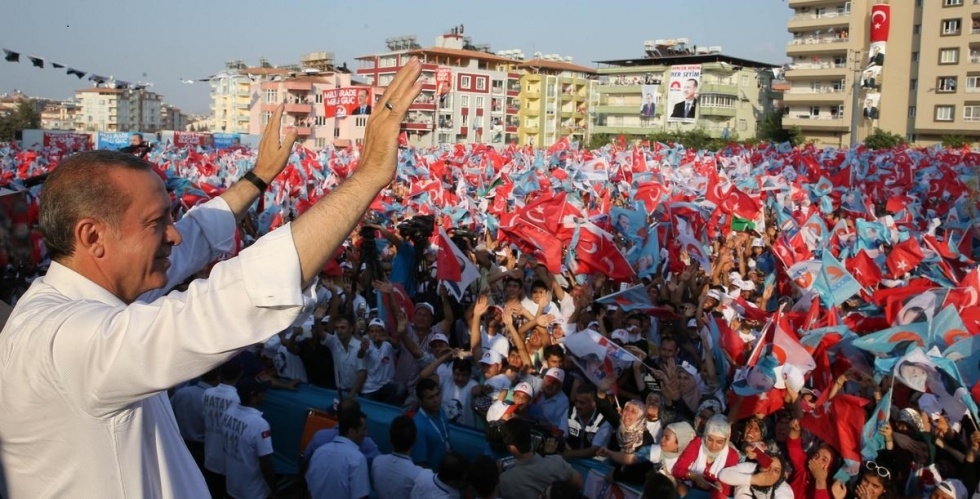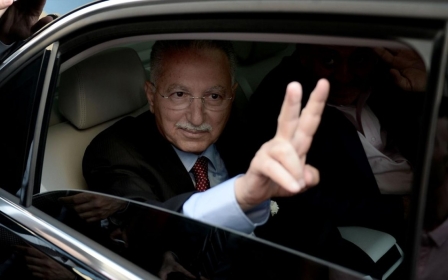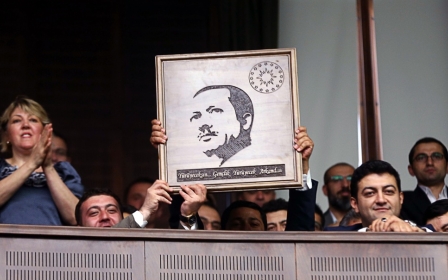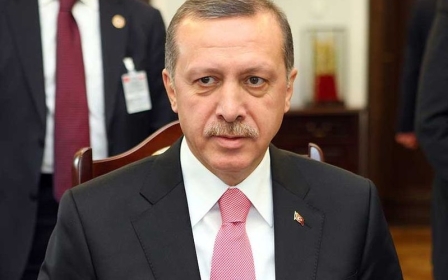Turkish presidential race: winner and losers

Following events, as they are shown by the media, is not enough to comprehend the upcoming Turkish presidential elections. To really understand what’s going on, an analysis of several factors in Turkey’s history of modernisation, Kemalism and most importantly the identity of the Turkish voter is needed.
Such an analysis would require some knowledge of Turkey’s political sociology. However, the western media’s emotional attachment to Turkish secularists makes it impossible for it to offer such an objective examination.
What is meant by ‘objective’ here is nothing but a sound and consistent analysis of the elections. Once the elections are over, the picture becomes clear anyway. It becomes easier to see who was more accurate, whose assessments were inconsistent.
The polling data offered by ANAR polling firm gets us closest to the type of analysis that is needed. ANAR’s polling results shows that 90 percent of the eligible voters intend to vote in the upcoming elections. Since the day of the elections coincides with a Ramadan holiday, this number might be slightly lower.
However, it should be remembered that the turnout for the elections held on 30 March, 2013 was also approximately 90 percent. This piece of information is important to understand the extent of the Erdogan’s AK Party’s success and the current nature of Turkish politics.
To get almost 50 percent of the votes in a race with four actively campaigning political party - in elections where the turnout rate comes close to the number of eligible votes - is a significant success.
The ratio of voter turnout at the presidential elections and the percentage of votes for current prime minster and AK Party head, Erdogan will show a reverse correlation. The lower the turnout, the higher Erdogan’s votes will be. The key to understand this is the fact that the AK Party constituencies consistently show high turnout rates. In other words, while the voters for Erdogan will show up, the same cannot be said for the opposition.
Another issue that can factor into the turnout rate for the opposition is the fact that neither of the two opposition parties that jointly nominated Ekmeleddin Ihsanoglu will fully stand behind their candidate.
The approval rate for the joint candidate seems to be low and stands at just 70 percent among the CHP (the Republican People’s Party) voters and around 60 percent among the MHP (Nationalist Movement Party).
On the other hand, it seems that Erdogan has the full approval of his own constituency. Although the third candidate Selahaddin Demirtas, of the Kurdish Peace and Democracy Party, enjoys approval rates around 80 percent among his registered party voters, the majority of Kurds continue to vote for Erdogan. The Kurds approval of the peace process Erdoğan initiated to resolve Turkey’s long-standing Kurdish conflict is clearly felt in the presidential race.
One of the biggest problems the Turkish opposition still faces is that they can’t seem to break through the barriers of their geographical areas of support. For instance, the CHP seems to have significant voters base only in three of the seven districts in Turkey.
The CHP seems to receive the majority of its votes from coastal districts where laicism is a significant part of the culture. Similarly, the MHP receives the majority of his votes from the cities in two districts out of seven.
The Kurdish political movement, clearly, receive their votes from the two districts that have higher populations of Kurdish constituents, but it must be stressed that even in these districts that have high Kurdish populations, the party of preference is still the AK Party.
In other words, the Kurdish political movement fails to enjoy full support of Kurdish constituents even in the face of a thirty-year armed conflict and unconscionable repression from the Kemalist tutelage regime.
The AK Party, on the other hand, is the preferred party in all seven districts. The local elections on 30 March 2014 had showed a lead for the AK Party in all districts except the western cost of Turkey where CHP and MHP had joined forces against the AKP.
The presidential election, by its very nature, is a race that can only be won by support from all seven regions. It goes without saying that the political party that appeals to constituents from all districts of Turkey will indisputably have the lead.
The AK Party is taking advantage of this lead in the presidential race. Last week, exactly a month before the elections, the polls showed Erdogan at 55 percent, Ihsanoglu at 38 percent, and Demirtas at 7 percent.
We will see to what extent this snapshot will change in the first tour. Opinion polls held in the next couple of weeks will anticipate how things will unfold. For now, it seems not that only will Erdogan win the elections in the first tour, but that he will receive a major victory against the opposition party, not unlike the victory of the 2010 referendum. Despite the fact that Erdogan had all the opposition parties unite against him in the 2010 constitutional referendum, he won by a landslide victory of 58 percent.
Should the current presidential race yield a similar outcome, the opposition will most definitely, feel heavy pressure. A question will inevitably rise: Just how much longer can the opposition leaders hold onto their seats after having lost every single race they entered against Erdogan in the last 12 years?
Not that such scrutiny will lead to any major changes. After all, losing every election for eight years has not changed anything for the opposition. This blind continuation of the status quo promises that Turkey’s ruling party will stay at the centre of Turkish politics for some time to come.
- Taha Ozhan is the president of SETA Foundation at Ankara. He is an academic, writer and columnist for Star Daily and Daily Sabah. He appears on weekly political debate show on national TV. He frequently comments and writes for international media. His latest book, Normalization Pains (2014), was about Kurdish issue.
The views expressed in this article belong to the author and do not necessarily reflect the editorial policy of Middle East Eye.
Photo Credit: Erdogan addresses crowds in Turkey as presidential vote looms (AA)
New MEE newsletter: Jerusalem Dispatch
Sign up to get the latest insights and analysis on Israel-Palestine, alongside Turkey Unpacked and other MEE newsletters
Middle East Eye delivers independent and unrivalled coverage and analysis of the Middle East, North Africa and beyond. To learn more about republishing this content and the associated fees, please fill out this form. More about MEE can be found here.





